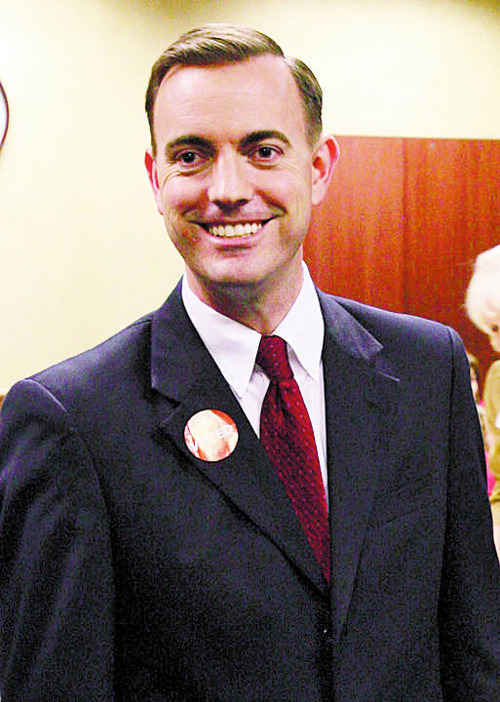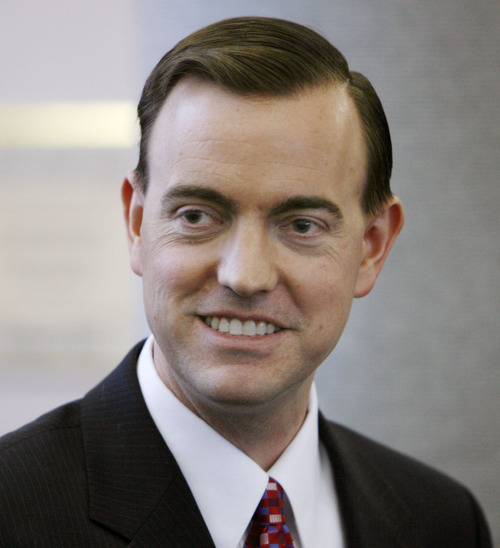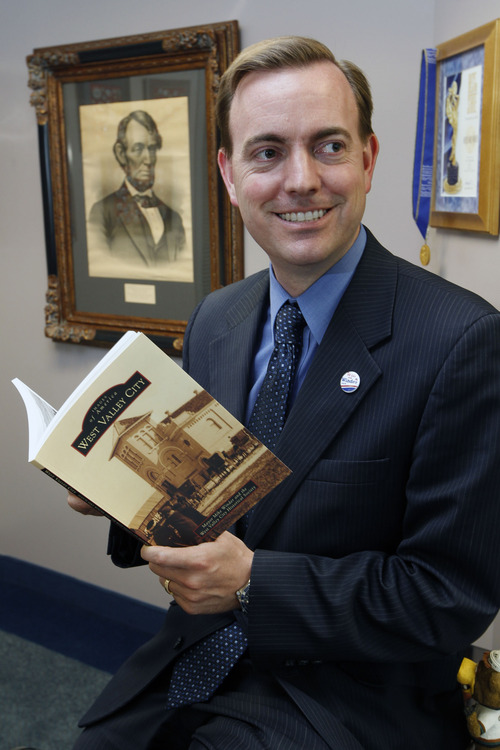This is an archived article that was published on sltrib.com in 2014, and information in the article may be outdated. It is provided only for personal research purposes and may not be reprinted.
A federal appeals court has ruled that an article penned under a false name by then-West Valley Mayor Mike Winder about alleged threats of extortion and blackmail by an ousted consultant for a government-run Internet company was not defamatory.
The 10th U.S. Circuit Court of Appeals affirmed a lower-court ruling dismissing the lawsuit filed by Chris Hogan, a former contractor with UTOPIA, targeting one of several articles Winder wrote for KSL and the Deseret News under the fake name of "Richard Burwash."
Hogan claimed he was fired in 2011 because he raised concerns that UTOPIA's then-executive director had steered a bid to a company where the director's brother worked. Hogan was fired and threatened to sue unless UTOPIA axed the executive director and paid Hogan $219,000 in damages.
An attorney for UTOPIA called the suggestion from Hogan's attorney goes by "the names of 'blackmail' and 'extortion.'"
In May of that year, a published article supposedly written by Burwash focused on Hogan's firing and said he had been accused of blackmail and extortion and that Hogan had been terminated for "performance issues." It was six months later when Winder revealed to management at KSL that he wrote that article and others under the pseudonym Burwash.
Hogan sued, claiming the article was defamatory, but the district court dismissed the lawsuit and the 10th Circuit upheld the decision Tuesday.
"Although the term [extortion] has a derogatory meaning when used either way, we cannot assume that the term always refers to a crime or similarly heinous conduct. Like with other words, context matters," wrote Judge Timothy Tymkovich in the unanimous opinion. "In this case, no reasonable reader would interpret the articles' statement that Hogan was accused of extortion to mean that Hogan was being accused of a crime or even especially sharp behavior."
The KSL piece and a separate trade-journal article, the court held, accurately reported the statements or documents in the employment dispute and were "simply too vague and nonspecific to sustain a false impression that would be highly objectionable to a reasonable person."
The court also ruled that Hogan could not sue the city, since Winder wrote the article under a false name and it was not written as part of his official duties as mayor.
The court in May had dismissed a First Amendment claim filed by Hogan and affirmed a ruling in his favor for breach of contract. It sent a wrongful termination claim back to the district court for further consideration. UTOPIA has asked the judge in that case to dismiss that portion of the suit.
An attorney for Hogan could not be reached for comment.
Attorney Jeff Hunt, who represented Deseret Digital Media, the parent company of KSL and the Deseret News, said the opinion from the court made clear that "context is critical when determining whether statements are legally defamatory."
"From a broader perspective, all defamation claims are limited by the protection of the First Amendment and they all reside in the shadow of the First Amendment," Hunt said. "I think this opinion is significant because it helps define Constitutional protections that exist for news media reporting on controversial issues of public concern, like UTOPIA."
Hunt said Winder authoring the article under an assumed name was a complicating factor in the case and Winder has acknowledged it was improper, but in the end made no legal difference because the content of the article itself was not defamatory.
Twitter: @RobertGehrke









